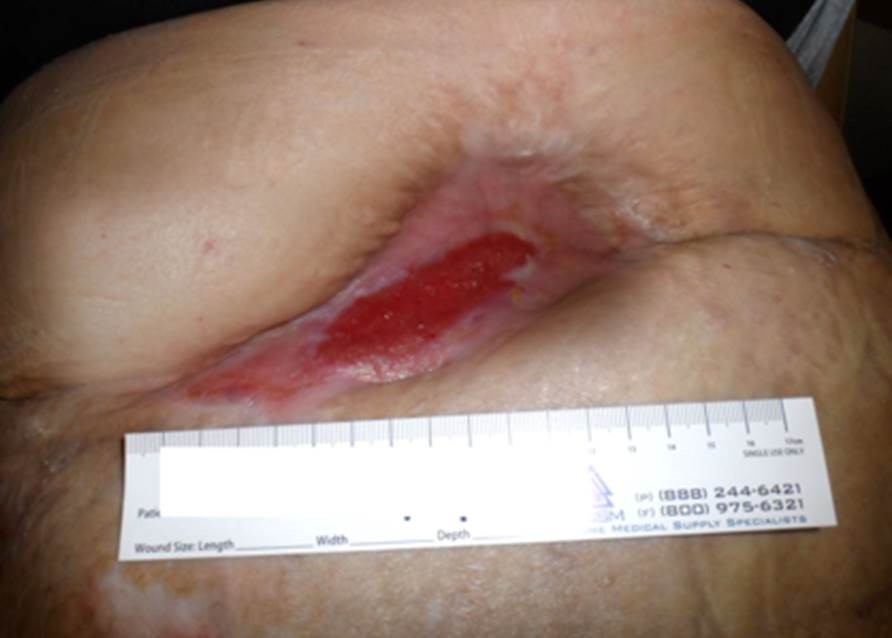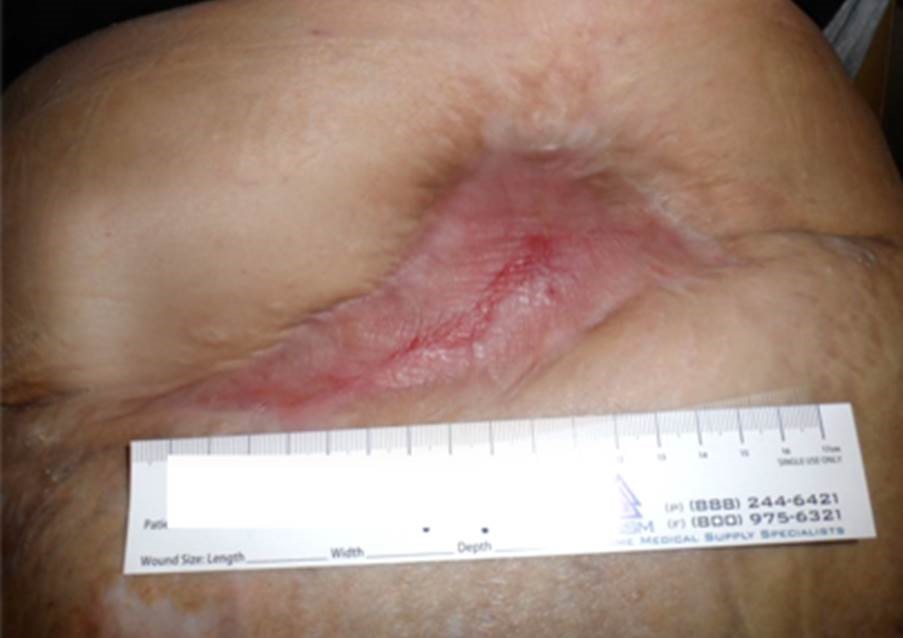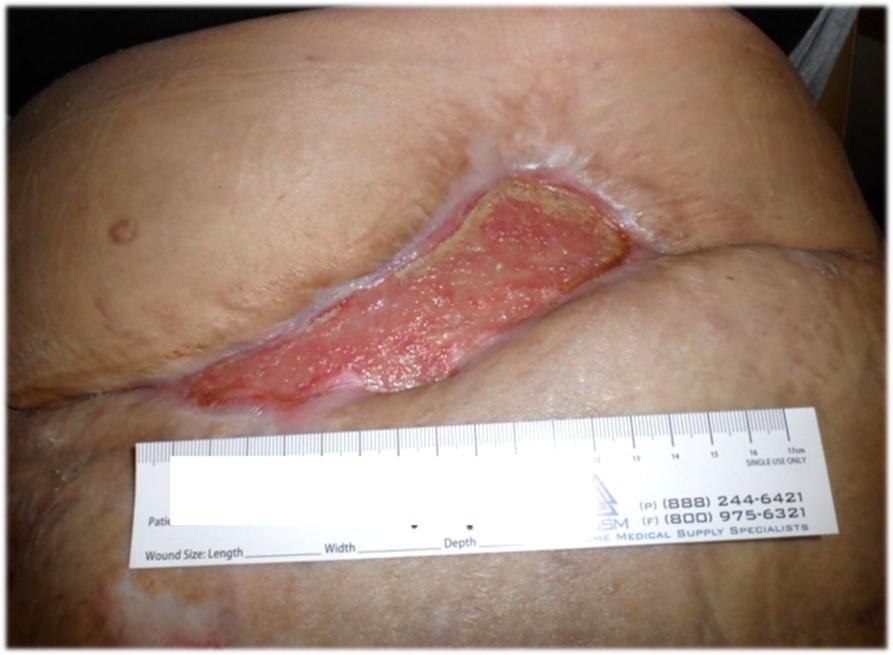This is a 35 y.o. woman with type 1 Diabetes, liver disease and end stage renal disease on home peritoneal dialysis after failed renal and liver transplants. She also has other wounds on her body due to pressure and ischemia. The abdominal wound had been present for 9 months since the removal of her transplants. She had Negative Pressure Wound Therapy for 5 months but that had been discontinued 4 months earlier and the wound had not changed much since then, despite many different advanced dressings. Over the past year, she’d had at least 3 different wound care teams looking after her during various acute care hospitalizations and a stay in in-patient rehab. Her weight often fluctuates 20 lbs due to fluid dialysis related shifts, so she wasn’t sure if she had lost weight. However, on her first visit I asked her about her diet, and she admitted that she had “texture” issues and had a very limited, monotonous diet and took no nutritional supplements.
I asked her to start taking 2 packs of L-arginine every day (after conferring with her nephrologist who said it was OK). In a month she’d developed pink granulation tissue; in 4 months the wounds was closed by more than half, and in 6 months it was completely closed.


I didn’t change her wound care regimen. That wasn’t the problem. She had some of the best teams in the country caring for these life-threatening, complex medical and surgical problems. There was only one thing that I did differently, and that was to make her commit to supplementation with L-arginine. I’ve protocolized nutritional supplements for all my patients with non-healing wounds in a way that’s simple enough for me to implement consistently. I can see the difference it makes on a daily basis.
I think this is an example of the fact that it’s still hard to do the right thing when it comes to nutrition in patients with chronic wounds. There are 3 big barriers:
- Physician commitment to optimizing nutrition
- Confusion over what to recommend
- Cost to the patient
It doesn’t seem like it should be so HARD, so I decided to tackle those 3 barriers and I’m going to tell you how.

Dr. Fife is a world renowned wound care physician dedicated to improving patient outcomes through quality driven care. Please visit my blog at CarolineFifeMD.com and my Youtube channel at https://www.youtube.com/c/carolinefifemd/videos
The opinions, comments, and content expressed or implied in my statements are solely my own and do not necessarily reflect the position or views of Intellicure or any of the boards on which I serve.



